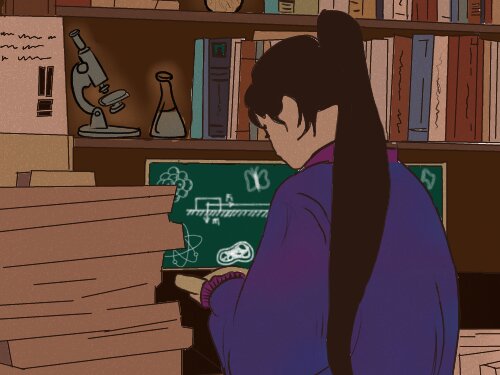In today’s interconnected world, effective science communication has taken center stage. Science not only informs our decisions but also shapes our understanding of the world and paves the way for societal progress. However, there’s a significant roadblock on the journey from the lab to the public, one that often operates behind the scenes but profoundly affects science communication: cultural bias.
For example, a hypothesis claims that people who prioritize a hierarchical social structure and value individual freedom might be less likely to believe in environmental problems, like climate change, regardless of the evidence provided to them. This may be because they think these issues could limit their personal freedom and the power of important people. (1)
Cultural bias is a subtle but powerful influence on our perceptions, interpretations, and engagement with the world, which extends to science as well. It’s a spectrum of beliefs, values, and assumptions deeply embedded in our cultural backgrounds. While we often think of science as a universal language, the truth is that cultural bias can sneak in and alter how we grasp, accept, or reject scientific findings.
Cultural bias is a phenomenon rooted in what experts call ‘cultural cognition.’ In a famous 1950s psychology experiment,students from two prestigious Ivy League colleges watched a football game between their schools. The catch? Officials made a series of controversial decisions favoring one side. Surprisingly, students from each college had vastly different takes on the same game. Why? Because their group affiliations subtly nudged them to see the game in a way that favoured their school. (2)
Cultural cognition is all about the influence of group values—like equality, authority, individualism, and community—on how we perceive risks and form beliefs. Research reveals that people tend to support positions that align with the commitments of their social group. (2) This paves the way for polarized debates on scientific topics like climate change and nuclear waste disposal, echoing the disagreements we see in less scientific cultural debates about issues like abortion and same-sex marriage. (3)
This cognitive process doesn’t stop at influencing our opinions. It also has a profound impact on science communication. People tend to resist scientific evidence that challenges their cultural values. For instance, individuals who uphold individualistic and hierarchical values may be more inclined to dismiss evidence of environmental risks because it might lead to restrictions on industries they admire. On the flip side, those with egalitarian and communitarian values may see these activities as sources of unjust disparity and consider them posing unacceptable risks. (2)
Now, let’s take a historical detour back to the late 19th century during the Franco-Prussian War. This period witnessed a significant divide in viewpoints on immunity, and it wasn’t just about scientific differences. Two renowned microbiologists, Louis Pasteur and Robert Koch, found themselves on opposing sides, not only in scientific debates but also in a broader cultural context. The war had ignited intense nationalism and animosity between France and Germany, which spilled over into their scientific work. Beyond the political tensions, both scientists held distinct philosophical, cultural, and scientific perspectives. Though healthy competition can drive scientific progress, rivalry can turn adversarial and lead to secrecy and distrust, hindering scientific advancements. (4) This chapter in history reminds us that cultural bias has been affecting science communication for a long time, transcending scientific disagreements and influencing how scientific information is perceived and accepted.
Recognizing and addressing cultural bias is crucial in making science communication more inclusive and accessible. We must acknowledge that our cultural backgrounds influence how we perceive and respond to scientific information. By doing so, we can bridge divides, encourage collaboration, and ensure that science truly serves the betterment of society. Science isn’t immune to cultural influence, but with awareness and proactive efforts, we can work toward a more inclusive and informed future.
References
1. Kahan, D., Peters, E., Wittlin, M. et al. The polarizing impact of science literacy and numeracy on perceived climate change risks. Nature Clim Change 2, 732–735 (2012). https://doi.org/10.1038/nclimate1547
2. Kahan, D. Fixing the communications failure. Nature 463, 296–297 (2010). https://doi.org/10.1038/463296a
3. Sanz-Menéndez, L., & Cruz-Castro, L. (2019). The credibility of scientific communication sources regarding climate change: A population-based survey experiment. Public understanding of science (Bristol, England), 28(5), 534–553. https://doi.org/10.1177/0963662519840946
4. Opal S. M. (2009). A Brief History of Microbiology and Immunology. Vaccines: A Biography, 31–56. https://doi.org/10.1007/978-1-4419-1108-7_3
Swati Karuppusami – AS Level – CS International
Cover Illustration – Riya S – Grade 9 – CS Academy


